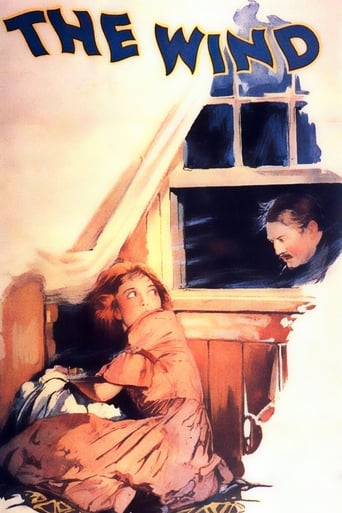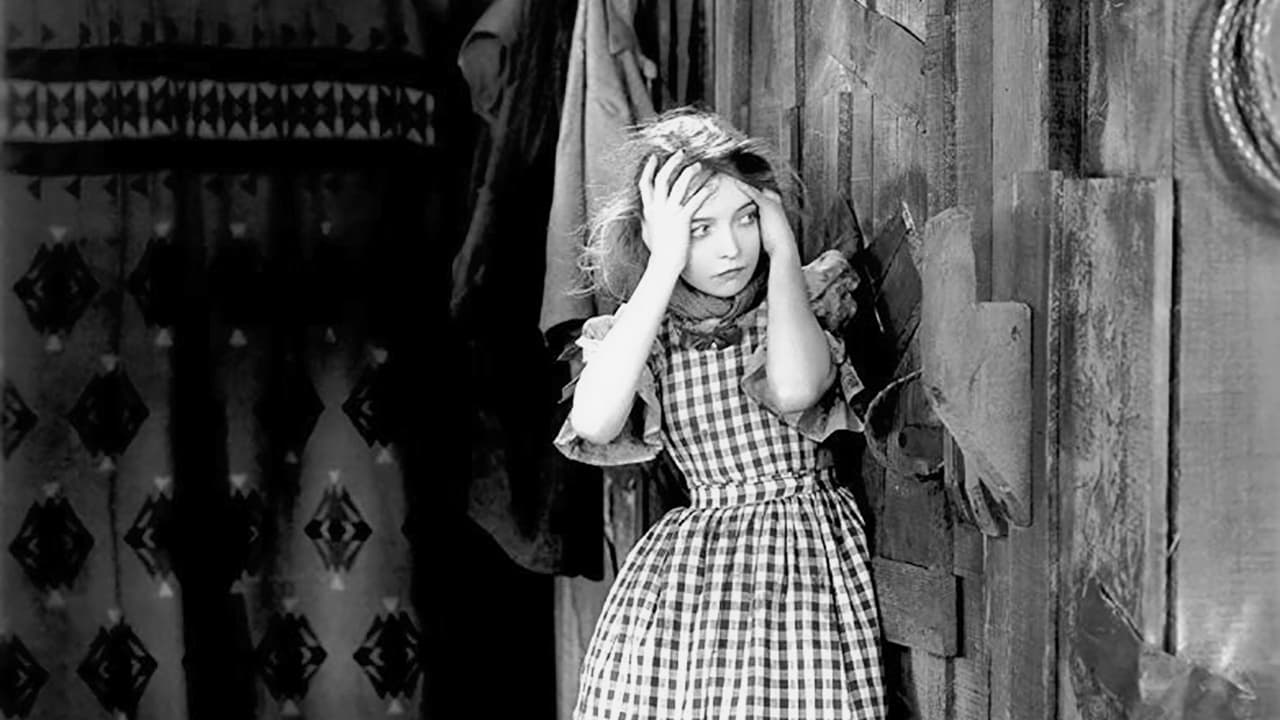tjsdshpnd
As the movie name suggests, the Wind plays a very important role in this silent Western. The Wind can be taken as a symbolic depiction of the mood and the mind of the lead actress. The story of an Eastern lady coming to the old, wild and windy west where the nearest neighbors are about 15 miles away. She has to adjust not only with the un favourable windy weather but also with the unfavourable nature of people around. I would call this a path breaking ahead of it's time flick with a very sophisticated message for that time. Add to it, some genuinely good camera-work, and this movie is an instant classic. For Western fans - This is not a typical western, the only action you will get is the turbulent mind of the actress trying to adjust with the turbulence around her.Lillian Gish was the silent movie superstar and also has the distinction of working for the maximum number of years in movies. She is what I would like to call an ice cold beauty. She is the soul of this film and has depicted the emotions pretty well. I would suggest everyone to watch this movie once.Rating : 8/10
calvinnme
Lillian Gish plays her usual virginal character thrown into adverse and unjust circumstances, but here she does so much with the part as we watch her slowly unravel and lose her mind. She plays Letty, a girl from Virginia who comes to live with relatives in a dust bowl town. The atmosphere into which she travels doesn't make sense in many ways. The people there supposedly make their living from cattle ranching, but with the constant sandstorms I don't see how anything is supposed to survive in such an environment. However, that is not really the point. The constant wind and storms are just metaphors for Letty's own mental state and feeling of entrapment. Her cousin's wife is hostile to her from the start, convinced that Letty wants to take her husband away from her, and eventually forces her out of the home. As a result she marries a man she doesn't love, and once this is clear to him he accepts the situation and makes it a goal to raise enough money to send Letty back to Virginia where she will be happy. On top of this there is the constant specter of a wealthy married man who wants to take Letty's virtue for the recreation of it all.The visual work on this film is spectacular, much like Murnau's "Sunrise" except in reverse - this film starts out on an upbeat note with Letty looking forward to the new direction her life has turned, and it being all downhill from there. Thus we come to the familiar topic of the abrupt upbeat ending and how it didn't make any sense in the context of the rest of the film. It was an early example of studio suits interfering with the artistic vision of the filmmakers, and so upset director Victor Sjostrom that he never directed another film in America.Like Murnau's "Sunrise" and "The Crowd", 1928's "The Wind" is an example of silent film-making at its peak. This level of art in movies would be lost at the dawn of sound until the problems with the static camera could be overcome and the novelty of sound wore off to the extent that plot and meaningful dialog became important. The first problem - technical - was remedied much more quickly than the second problem, which was largely a matter of psychology and experience.Highly recommended for silent film fans.
didi-5
'The Wind' is something of a pot-boiler. Lillian Gish goes to stay with her cousin in the country (a place where the wind constantly blows, storms boil, and cyclones attack). But jealousy and her own naivety cause problems for her - that and a charming stranger she meets on the train into her destination.The wind itself is a major character in this film, causing havoc, covering up secrets, coming into houses, distracting, dissolving, and influencing all outcomes. When Gish's character is railroaded into marriage with a man she can't love, we shouldn't be surprised, nor should the main events leading to the film's conclusion be unexpected.Beautifully shot by Seastrom and a wonderful performance from Gish help bring this film out from the classification of usual silent adaptations. It works well and even with an ending not originally as written, stands up after all this time.
JoeytheBrit
MAJOR SPOILERS This was very much a Lillian Gish project apparently. The actress presented MGM with a treatment of Dorothy Scarborough's novel (from which Frances Marion wrote the script) and hand-picked her director and leading man. The result is a film that is rightly regarded as a silent classic, but which also emphasises the changes all aspects of film-making would undergo with the introduction of sound. In fact, the film bombed when it was released, and it was only long after its initial release that it was re-assessed.Lillian Gish is very much the star of the film, and its easy to understand why she was such a major star of the silent screen. Her beauty is luminescent, and she has a fine natural style that largely avoids the grand gestures employed by some contemporaries whose reputations haven't stood the test of time as well as Gish's has. Swedish actor Lars Hanson, whose US career would be finished by the introduction of sound, also gives an impressive naturalistic performance, conveying more with his eyes than facial gestures. And the assured direction of the great Swedish director Victor Sjostrom adds class to a thin plot that could have been pure melodrama in the hands of a less accomplished director. The scenes following Letty's murder of Roddy - another great performance, this time from Montagu Love - in which she imagines the wind uncovering his body are especially powerful. It should also be mentioned that the final dramatic scenes are enhanced immeasurably by a flawless soundtrack from Carl Davis.It's ironic that MGM insisted the original ending - in which a crazed Letty wanders off to certain death in the desert - be changed for a less powerful, but still satisfying happy ending. With the introduction of the Hays Code just a few years after this film was produced, the studio would have insisted that the troubled Letty be denied a happy outcome because she has committed the crime of murder...


 AD
AD



